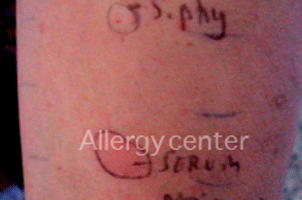Urticaria is a redness of the skin, most often composed of multiple red or pink plates, embossed with perfectly defined and smooth surface contours. The lesions migrate from one place to another. This redness is accompanied by fierce itching altering the quality of life of patients. Sometimes it is associated with swelling of the face, lips and eyelids and may even affect the tongue, uvula, vocal cords and larynx and cause asphyxia.
Hives can persist for a few hours to a few days to disappear without a trace, it is called acute form is the most common form.
However, this rash can develop over 6 weeks or recur repeatedly at short intervals. In the latter case, is called chronic urticaria.
The causes of urticaria are numerous:
Perioral dermatitis and cheilitis in a 12 years old patient, whose exploration confirmed milk allergy.
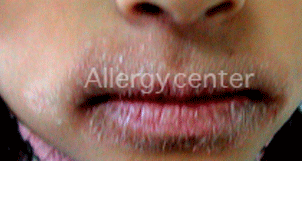
Acute urticaria and allergy to cow’s milk in an 9 month child

True food allergy or related to susceptibility to histamine, which in this case be compared with a diet rich in histamine (chocolate, strawberry, fermented cheeses, fermented beverages, meats, preserves, blue fish, spinach, tomatoes).
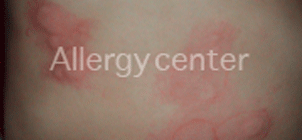
TUNISIAN CENTER FOR EXPLORATION OF ALLERGIC DISEASES
Drug allergy
Acute urticaria by allergy to aspirin in a patient

Physical urticaria triggered by stress, heat, cold, charging port, vibration ….

Acute urticaria induced by physical exercise in a 16 years old patient.
Dermographism in a 38 years old patient, with chronic urticaria.
It consists dermographism the appearance of an urticarial wheal following a simple friction.
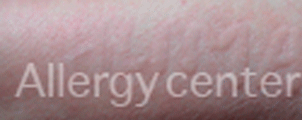
Infectious urticaria
Facial edema and urticaria associated with a viral infection.
Allergy testing are negativs Lesions disappear with the disappearance of the infection.

Contact urticaria
Angioedema with immediate allergy to latex.
Systemic urticaria : due to the presence of a systemic disease affecting in particular the immunity
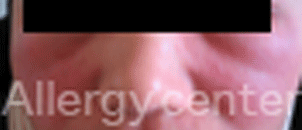
Disabling chronic urticaria in a 52 years old patient. Autologous serum skin test (IDR with its own serum) positive.
Negative immunological tests.
Autoimmune urticaria by anti-IgE or anti-IgE receptor existence.
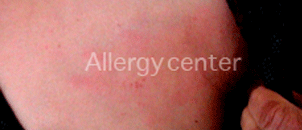
In all cases, allergy tests ordered by your doctor to know the possible causes.
